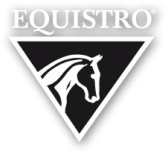
Biotin (vitamin H)
Sources
Healthy adult horses are able to synthesize biotin in sufficient quantities via the bacteria in the large intestine if they are given enough forage. Particularly rich in biotin are brewer's yeast and leafy green fodder.
Daily requirements
For horses with poor quality of hoof horn that might suffer from a deficiency, a daily amount of biotin between 3 and 4 mg / 100 kg BW or between 15 and 20 mg / 500 kg BW / day is recommended.
Deficiency
Although biotin is derived from synthesis by gut microbes in horses, it has been proved that supplementation with biotin is beneficial in horses with poor hoof quality as biotin is possibly the vitamin of greatest importance to the keratinization process. Initial indications of an undersupply of biotin may be reduced horn quality (crumbling, cracked, brittle horn), hair loss or skin changes. A lack of biotin in horses can be caused by insufficiently enriched feed and, above all, a disturbance in the balance of the intestinal flora.
Excess
Due to the reduced storage capacity of water-soluble vitamins, care should be taken to ensure a sufficient and continuous supply. Supplementary feeding is particularly advisable in months without a supply of fresh green gras. As excess amounts of water-soluble vitamins are excreted via the kidneys, an oversupply of biotin is unlikely.
Important to know
It is recommended that biotin supplements should be fed for at least 6-9 months and if this results in an improvement in the hoof quality it may be advisable to provide such a diet with constant high levels of biotin continuously.


